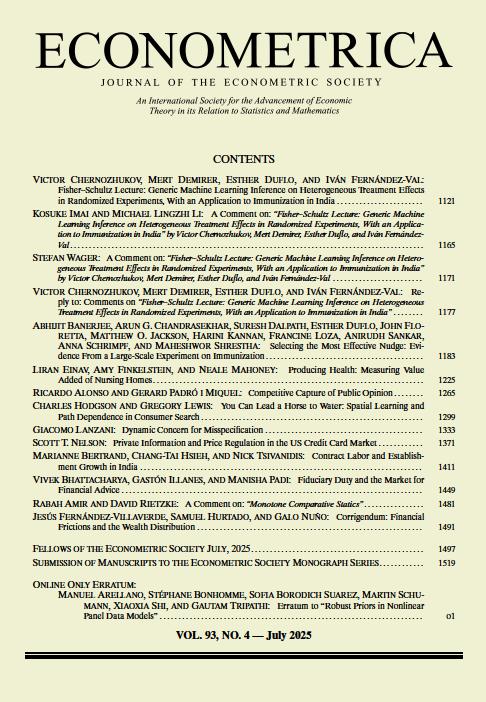A Folk Theorem for Asynchronously Repeated Games
Abstract
We prove a Folk Theorem for asynchronously repeated games in which the set of players who can move in period t, denoted by It, is a random variable whose distribution is a function of the past action choices of the players and the past realizations of Iτ's, τ=1, 2,…,t−1. We impose a condition, the finite periods of inaction (FPI) condition, which requires that the number of periods in which every player has at least one opportunity to move is bounded. Given the FPI condition together with the standard nonequivalent utilities (NEU) condition, we show that every feasible and strictly individually rational payoff vector can be supported as a subgame perfect equilibrium outcome of an asynchronously repeated game.




